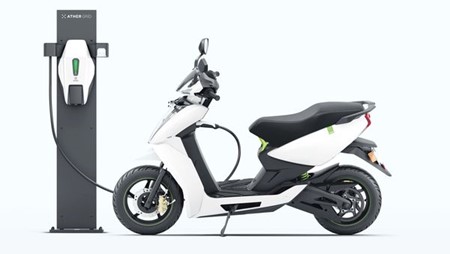The Indian government, in collaboration with the World Bank and the Small Industries Development Bank of India (SIDBI), is planning to launch a $1 billion fund to finance the purchase of electric two- and three-wheelers. The fund is expected to be launched in the next few months and will be available to both individuals and businesses.
The fund is expected to provide a much-needed boost to the adoption of electric two- and three-wheelers in India. Electric two- and three-wheelers are more affordable to operate and maintain than traditional petrol and diesel vehicles, and they also produce zero emissions. However, the upfront cost of electric vehicles is still higher than traditional vehicles. The new fund is expected to make electric vehicles more affordable for consumers and businesses.
Benefits of the $1 billion fund for 2/3-wheeler EV financing
The $1 billion fund for 2/3-wheeler EV financing is expected to have a number of benefits, including:
- Accelerated adoption of electric two- and three-wheelers: The fund is expected to accelerate the adoption of electric two- and three-wheelers in India by making them more affordable for consumers and businesses.
- Reduced air pollution: Electric two- and three-wheelers produce zero emissions, so the fund is expected to help reduce air pollution in India. Air pollution is a major public health concern in India, and the fund can play a significant role in improving air quality.
- Improved public health: Air pollution is a major cause of respiratory and other health problems. The fund is expected to improve public health by reducing air pollution.
- Reduced greenhouse gas emissions: Electric two- and three-wheelers produce zero greenhouse gas emissions, which contribute to climate change. The fund is expected to reduce greenhouse gas emissions from the transportation sector in India.
- Job creation: The fund is expected to create jobs in the electric vehicle manufacturing and service sectors.
Challenges
The $1 billion fund for 2/3-wheeler EV financing will face some challenges, including:
- Awareness: Many people are not yet aware of the benefits of electric two- and three-wheelers. The government will need to raise awareness of electric vehicles and their benefits in order to promote their adoption.
- Infrastructure: India needs more electric vehicle charging stations and other related infrastructure to support the growth of electric vehicles. The government and the private sector will need to invest in developing the necessary infrastructure.
- Cost: Electric two- and three-wheelers are still more expensive than traditional petrol and diesel vehicles. The government will need to make electric vehicles more affordable for consumers and businesses in order to accelerate their adoption.
Conclusion
The $1 billion fund for 2/3-wheeler EV financing is a welcome development. It is expected to have a number of benefits, including accelerated adoption of electric two- and three-wheelers, reduced air pollution, improved public health, reduced greenhouse gas emissions, and job creation.
The government will need to address some challenges, such as awareness, infrastructure, and cost, in order to make the fund successful. However, with the right support, the fund can make a significant impact on the adoption of electric two- and three-wheelers in India and help to reduce air pollution and greenhouse gas emissions from the transportation sector.
Additional thoughts
The Indian government's support for the electric vehicle industry is in line with the government's commitment to reducing air pollution and greenhouse gas emissions. The government's support for the electric vehicle industry is also expected to create jobs and boost economic growth.
The $1 billion fund for 2/3-wheeler EV financing is expected to help India achieve its ambitious targets for the electric vehicle industry. The Indian government has set a target of having 30% of all new vehicle sales in India to be electric by 2030.
Other countries are also investing in the promotion of electric vehicles. For example, the United States and China have both announced multi-billion dollar investments in the electric vehicle sector.
The global electric vehicle market is expected to grow rapidly in the coming years. The increasing popularity of electric vehicles is being driven by a number of factors, including rising air pollution concerns, government incentives, and falling battery prices.
The Indian government's $1 billion fund for 2/3-wheeler EV financing is a positive step towards a more sustainable future for transportation.






